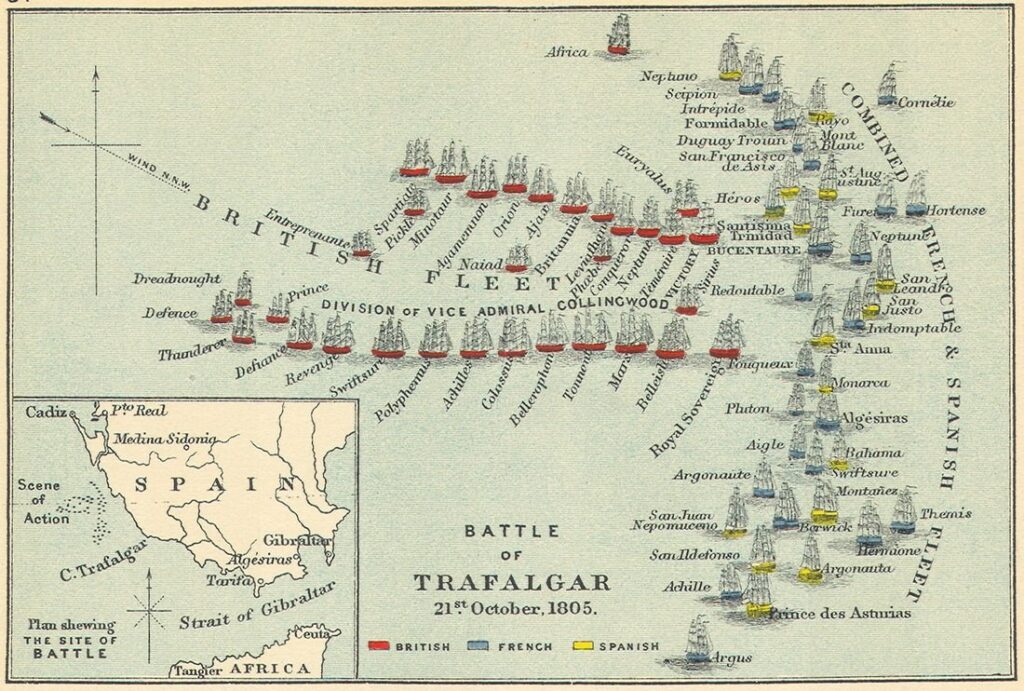We are developing the social individualist meta-context for the future. From the very serious to the extremely frivolous... lets see what is on the mind of the Samizdata people.
Samizdata, derived from Samizdat /n. - a system of clandestine publication of banned literature in the USSR [Russ.,= self-publishing house]
|
I know he trash-talks. I know that much of what he says is aimed at his base, so it should be taken with a pinch of salt, but this is bizarre. Greenland is not part of the United States and has no desire to be. If the USA wants to enter into trade talks that give them mineral rights or even defensive bases, then fine. But talk of taking it is no different to what is going on in Ukraine – a bigger, hostile neighbour taking by force. In reality, they could do it. Greenland could not withstand an invasion, and despite its tough talk, Denmark would be unable to offer much assistance. Denmark, like the rest of Europe, is weak defensively, and the US administration knows it. Despite the trash-talking, I really don’t think he would go that far.
Would he?
As I say, what the Hell is going on here?
– Longrider
“The Russians are deemed to have agency: the could stop the war. Hamas are treated as if they lack self-determination: they are not held accountable for their crimes or expected to release hostages. Excuses are found for them, in a classic case of the racism of low expectations. Every attack on Israel triggers demands that Jerusalem surrenders territory, that it helps those seeking to exterminate it; things are that are (correctly) never demanded of Ukraine.”
– Allister Heath, in an excellent take-down of the double-think that seems to operate with the UK government and much of the political/chattering classes about what is going on in Ukraine/Russia and Israel one against various Islamist forces. (Article is behind paywall.)
As European countries, finally, crank up defence spending, International Traffic in Arms Regulations (or “ITAR”) are likely to come up in conversations.
Reflecting on topics such as this got me thinking that so much of the Western supply chain in military kit is controlled by the US. On the positive side, you get economies of scale and all that comes with these kind of forces. For years, Americans have been keen on selling all this funky kit to the likes of Germany, Britain, etc.
The problem is that to follow an independent foreign and military policy in this new era means that chain is breaking. There is talk that the US can operate a “kill switch” so that countries using certain US-made weapons cannot use them in ways that an administration does not like. It reminds me a bit of worries about Chinese electric vehicles being vulnerable to such a “switch”.

This seems in some ways to be a risk management issue. There is a broader Nassim Taleb-style point about making defence and security in the free world less fragile. Think how much of our defence and communications run off a handful of networks and suppliers. There are US satellites, cloud computing services from the likes of AWS, Microsoft, etc; military hardware suppliers in the US such as Lockheed Martin, Raytheon, Pratt & Whitney. And many more. These systems generate great efficiencies and rich export earnings, particularly for the United States.
There’s a problem – a fragility. Europe has become dependent, complacent and comfortable.
As we found out because of the 2008 financial crisis and covid, overconfidence in certain institutions (US government, central banks, medical experts) can lead to dangerous outcomes. There is a sort of moral hazard problem. Just as “too-big-to-fail” bank bailouts create foolish attitudes about risk, a sense that the US military or whoever would ride to the rescue of a country meant too many nations got complacent. In fact, it is possible to see some of what is going on right now in behavioural terms. Incentives matter. Shield people against certain costs, and they become spendthrifts, borrow too much, or assume they can strike attitudes on things and there won’t be bad outcomes.
(See my related post on what countries such as in Europe, parts of Asia etc, do now.)
The brutal Assad regime has collapsed. That is one on the eye for Russia, always a good thing, seeing the end of the Russian navy’s only base in the Mediterranean. And one in the eye for Iran, also a good thing, meaning they have little to no ability to continue supporting what is left of Hezbollah… but the motley crew who have toppled the Ba’athist Syrian regime have more than a few black ISIS/Al-Qaeda flags in their midst, so regardless of very conciliatory statements by HTS towards Syria’s non-Islamic population and even Israel, it remains to be seen how this will shake out.
As a side note: when Patricia Marins predicted the rebel offensive would go nowhere, I became confident the rebels were headed for victory a week ago 😀
Trump has long argued it was unreasonable for US taxpayers to be subsidising Europe’s defence when European governments are unwilling to stump up to defend themselves.
It seems that today, many European pundits are now belatedly in agreement with Trump, yet I have encountered quite a lot of annoyance when I point this out. It is hard to not laugh 😀
How to tell if the people in Europe making predictions of doom if Trump wins actually believe what they have been saying:
Europeans defence expenditures go to 4%+ (i.e. Polish levels) within the next few months.
Otherwise it’s just so much verbal flatulence.
If Trump does indeed abandon Ukraine and tries to force a de facto surrender of occupied territories on them, and Europe still does not rapidly ramp up defence expenditure, then maybe Trump and the USA was never the problem.
219 years ago today…
 
We must be clear about things: A just world required this man to die, and ideally without dignity. I can put it in no blunter terms than that, nor even conceive of them. I am utterly relieved about his death, and more than a bit elated as well — not because I am bloodthirsty, but precisely because I despair over the implacable bloodthirstiness of Hamas, an organization that came to power in the Gaza Strip after it was literally handed to the Palestinians but that, instead of governing for the benefit of its people, harvested its resources and human capital to plot the slaughter, abduction, rape, and eventual genocide of its Jewish neighbors. Sinwar died with a shell through his skull and a roof collapsed upon his bomb-belted body, and I confess my grim satisfaction at the closure of it, if nothing else. He was given the opportunity to be an actual leader, and he invested all of it in hatred and terror. I celebrate, and couldn’t care less if you think differently.
– Jeffrey Blehar
One detail that perhaps got lost in the recent UK decision about the Indian Ocean group of islands containing Diego Garcia – taken very fast and over the heads of the Chagos Islands locals (which hardly fits with ideas about decolonisation) – was that President Biden applauded the move. In way this isn’t surprising. Pr. Biden doesn’t particularly like the UK, and like a certain kind of American politician, has a grudge about the old, post-imperial network of relationships and territories that the UK has, or had, around the world. More fool him.
In this transfer and lease deal (which is not, as far as I know, formally signed and there has been no formal debate or legislation about this in Parliament) the UK is transferring taxpayers money in a payment programme to a tax haven (Mauritius). If the Tories had done this, the tax haven angle would have been constantly mentioned.
It seems ironic that Labour, a party not exactly known for its love of tax havens (unless Tony Blair uses one) or such international conduits, feels it is okay to deal with Mauritius financially in this way. Don’t get me wrong, I am for tax havens, and the more of them the better, because they deter otherwise high-tax governments from going crazy when capital is mobile, although as UK finance minister Rachel Reeves is proving, that’s not a solid protection. Tax hikes are likely in the 30 October UK budget. People are leaving.
Biden’s support for what’s happened should give pause, given what a poor President he is on foreign affairs, in my view. Also, he hasn’t made much disguise of his distaste for Brexit and the UK’s independence out of the bloc, and neither did Barack Obama. There’s no enthusiasm from that quarter for the UK to engage in new trade and other deals with countries outside the EU. And Biden’s own recent judgement about foreign affairs is spotty at best: half-decent on Israel and Ukraine, and shockingly inept over Afghanistan, with the rushed departure and loss of billions of dollars of equipment.
Those on the Republican side are, apparently, far less happy about the Chagos islands deal, and the potential risk to security of the Diego Garcia airbase jointly used by the UK and US. They know how porous leasehold deals can be, and have seen that Mauritius has used all legal pressure to change the terms of its independence settlement with the UK of 1968. The US Air Force has used the base in recent conflicts; if it wanted to bomb Iranian nuclear facilities, for example, and do so via Diego Garcia, the situation becomes dicier than it might have been. One has to wonder about the role of China in all this (Chinese money flows through Mauritius.)
This whole saga also shows that if the UK is to pursue a more “blue water” foreign policy in future as it expands trade links with countries outside Europe, particular in Asia, that getting its defence arrangements locked down is essential. And we need to lose our illusions about how special our relationship with the US really is at times.
Daniel Hannan has this excellent overview of just what a shockingly poor transaction the UK has made with Mauritius. Hannan argues that Mauritius has never exercised sovereignty over the islands, a fact that is so shocking it is hard to argue how on earth we reached this point and how the Mauritius government thought it could bully its way ahead on this. However, a future, different UK government should certainly revisit the terms of this deal, and press hard on Mauritius if, for example, that country’s anti-money laundering standards are questioned in future. Time for a bit of nastiness behind the smiles.
It may be too late now to change course on this specific, shabby deal, at least under the current Starmer government. I fear it is. And now there’s speculation about what happens to the Falkland Islands and Gibraltar. The UK has shown itself to be weak. People tend to notice.
“The past year has not been a Palestinian war against Israel, nor an Arab war against Israel. It has been an Iranian war against Israel, fought directly by Tehran’s own military and through its numerous terrorist proxies, including Hamas, Palestinian Islamic Jihad, Hezbollah, Yemen’s Houthis, and Iraq and Syrian milita groups. And behind the terrorist storm troopers lies Iran’s nuclear weapons programme.”
– John Bolton, Daily Telegraph, writing today on the grim anniversary of the 7 October progrom inflicted by Hamas on southern Israel last year.
My thoughts with those who grieve for the loss of their loved ones.
“The only appropriate responses to Israel’s gallantry, fortitude and skill from us—its nominal allies, especially in the U.S.—are “thank you” and “how can we help?” Instead, time and again Israel’s supposed friends, including the administration of Joe Biden and Kamala Harris, have, while expressing sympathy over the outrage of Oct. 7 and uttering the usual support for “Israel’s right to defend itself,” repeatedly tried to restrain it from doing just that. Their early, valuable support has been steadily diminished by the way they have too often connived with the anti-Israel extremists in their own party.”
– Gerard Baker, Wall Street Journal ($)
It looks like Israel’s Iron Dome air defence system and Arrow anti-ballistic missiles have mostly succeeded in intercepting the missiles sent by Iran. The Iranian regime did not send drones this time because having them shot down by the Jordanians last time was embarrassing.
I saw this quote by John Podhoretz on Twitter:
“The creation and promotion of missile defense by Ronald Reagan remains one of the signature events in world history, and all of you who derided it and him have lived to see your worldviews discredited and your sanctimony discarded by history.”
To which Dan McLaughlin added,
Joe Biden, 1986, to the National Press Club: “Star Wars represents a fundamental assault on the concepts, alliances and arms-control agreements that have buttressed American security for several decades, and the president’s continued adherence to it constitutes one of the most reckless and irresponsible acts in the history of modern statecraft.”
|
Who Are We? The Samizdata people are a bunch of sinister and heavily armed globalist illuminati who seek to infect the entire world with the values of personal liberty and several property. Amongst our many crimes is a sense of humour and the intermittent use of British spelling.
We are also a varied group made up of social individualists, classical liberals, whigs, libertarians, extropians, futurists, ‘Porcupines’, Karl Popper fetishists, recovering neo-conservatives, crazed Ayn Rand worshipers, over-caffeinated Virginia Postrel devotees, witty Frédéric Bastiat wannabes, cypherpunks, minarchists, kritarchists and wild-eyed anarcho-capitalists from Britain, North America, Australia and Europe.
|






